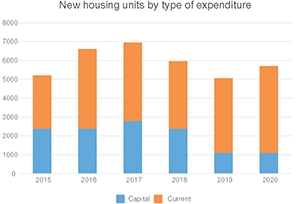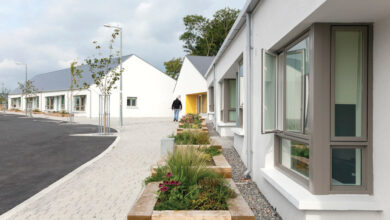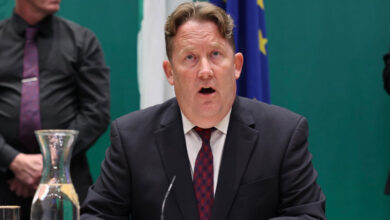Dealing with demand for social housing
The vision of the Social Housing Strategy 2020 is that access to secure, good quality, affordable housing will be available for every household in the country. eolas summarises the strategy’s three key goals.
Government funding for social housing has significantly declined over the economic downturn despite the demand on stock being great. The budget stood at over €1.7 billion in 2008 and fell to €597 million last year. The Social Housing Strategy bucks this downward trend with a pledge to spend an estimated €3.8 billion in the years leading up to 2020.
The new strategy recognises the need for access to affordable housing but also takes into account the location – it must be provided in a sustainable community. From next year, there will be an annual assessment of housing need to measure how the strategy is progressing and also to gauge any shifts in demand.
Phase one has a target of providing 18,000 new housing units and 32,000 rent-assisted units by the end of 2017. Phase two aims to provide 17,000 new housing units and 43,000 rent-assisted units by the end of 2020.
The strategy is comprised of three pillars:
• the provision of new supply;
• supporting housing through private renting; and
• reforming support to create a more flexible and responsive system.
Provision of housing
The first pillar aims to provide 35,000 new social housing units over a six-year period to meet the supply requirements determined by the Housing Agency. They will be delivered through local authorities or approved housing bodies (AHBs).
Central to the Government’s vision is an enhanced role for AHBs in the provision of new housing. The formation of large scale providers is encouraged. A multi-annual housing expenditure programme and a more streamlined funding process will be introduced as well as enhanced regulation.
Existing stock will be reviewed and suitably refurbished so that it is more sustainable and used more efficiently. Increased efforts will be made to bring vacant property back into use and there will be continued support for regeneration projects. A newly-established Dublin Social Housing Delivery Taskforce will respond to supply challenges facing the city and facilitate developments with mixed tenures while ensuring maximum value.
The second pillar of the strategy looks at providing housing through the private rental sector. A lack of affordable housing is keeping potential homeowners in rented accommodation. Demand for properties to let is driving up rental prices and putting further strain on householders. The cost to the Government of supporting tenants through rent payments and schemes is over €500 million annually.
A more sustainable and cost-effective way of providing social housing support will be developed. A cost rental segment will be explored to avoid sharply rising market rents; demand for social housing could lessen as a result of steadily increasing cost rental housing. A pilot programme will be carried out with AHBs and local authorities.
Housing assistance payment (HAP) aims to better regulate the private rental sector and to provide a more integrated, streamlined service. HAP continues to be rolled out, replacing the rent supplement for people with a long-term housing need. It is expected that the needs of over 75,000 households will be met by HAP and the rental accommodation scheme.
Reform for the future
The strategy’s third pillar looks at reforming social housing support in order to meet people’s needs and improve their circumstances. This includes continued support for people transferring to HAP, the introduction of a new framework for rent and other charges for the various types of social housing, and the creation of a new tenant purchase scheme for existing local authority housing. For example, a reform of differential rents will enable tenants to move on from social housing as their financial circumstances improve.
Local authorities will remain key providers of social housing. However, they will have an enhanced role in the leadership and co-ordination of other providers delivering social housing. Existing powers of local authorities will be expanded to counter anti-social behaviour.
There will also be greater choice for tenants. A choice-based allocation process – created and used by South Dublin County Council – will be rolled out to other authorities and the creation of an individual ‘housing passport’ is being examined which would allow tenants to move between local authorities.
Looking ahead, on-going monitoring and review is high on the agenda. In 2017, a review of progress made by the strategy will take place. All funding and delivery structures for social housing programmes will also be analysed.
The existing provision of social housing support will also be assessed as will the guidance and regulation of allocation schemes. How social housing support is assessed and allocated to the vulnerable members of society will also be reviewed in an attempt to better match their needs.
Environment Minister Alan Kelly maintains that the strategy will provide for a more economic, sustainable, progressive and integrated approach to social housing delivery in Ireland.
“One of the main priorities for this Government is to address the challenge of providing social housing for the people of this country,” he remarked.
“This strategy sets out how we will achieve this priority.”
The Labour TD added that it “restores the State to a central role in the provision of social housing through a resumption of direct building on a significant scale” by local authorities and AHBs.”
Fianna Fáil environment spokesman Barry Cowen says that Ireland is failing in its duty to provide all citizens with their basic right to a home.
“The housing supply is under huge pressure due to the collapse of the construction sector,” he continued.
“We simply do not have enough family homes in the right locations to cater for demand. A vicious combination of harsh social welfare cuts and escalating rents has driven more and more people onto social housing waiting lists and has significantly increased the level of homelessness.”
His Sinn Féin counterpart Dessie Ellis contends that social housing construction through local authorities is the only solution to the housing crisis.
“The Government must refocus on funding the construction and refurbishment of council homes,” Ellis has stated.
“The homes needed will not be found on the private market, where developers operating as landlords are making handsome sums in extortionate rents due to the shortage of rental properties.”







